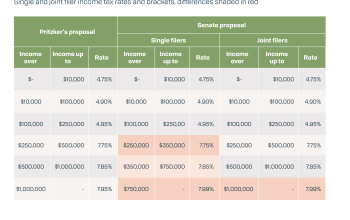At present, the United States Department of the Treasury is actively cooperating with more than 50 countries to share the personal financial data of Americans to show who (including American nationals living overseas) meets the tax requirements. This effort is to support the new FATCA, which requires foreign financial entities to report the account information of Americans to the U.S. authorities, and compels Americans to collect their income tax laws from the source in order to comply with the U.S. income tax law.
After weighing, the United States will return the data of its nationals who have accounts in the United States. These laws have been promoted at various levels since they were formulated in 2010. The United States has signed major agreements with Britain, Germany, France, Spain, Italy and other five major European sovereign countries, and signed the European Sovereignty Agreement. Contract Template “; Working with the UK.
The launch, listing and implementation of FATCA is a wise measure even if it is not a smart measure of the US Treasury. The United States has begun to formulate FATCA, mainly relying on foreign financial entities. In order to ensure that Americans comply with U.S. tax laws, U.S. customers are forced to comply with some new regulations on data reporting and expense deduction. On the contrary, foreign financial interest groups are also desperately seeking relief from their own governments. The task of the United States is very heavy and the cost of implementation is very high. The solution for the financial community is their own governments, many of which already have the data the United States wants to meet the sharing requirements imposed on everyone by the United States using its global financial influence.
More than 50 countries are clamoring to join. Part of the reason is that FATCA itself is controversial. Foreign financial entities plead with their governments to facilitate new reporting requirements under U.S. law. For many people, they are unable to continue trading with American customers and are closing their accounts. In addition, foreign banks and investment companies that do not comply with the regulations face a 30% source tax on their transactions in the United States and cannot opt out.
It is expected that the US Department of Finance will determine the data sharing agreements that have been signed with Norway, the Netherlands, Mexico, Jersey, Ireland, Mountain, Gengi, Finland, Denmark, Canada, Switzerland, Japan, Spain, Germany, Italy, France and other countries before the end of the year.
The Ministry of Finance is actively negotiating with the following countries to finalize and publish data sharing agreements in Sweden, Singapore, Slovakia, New Zealand, Malta, Malaysia, Liechtenstein, South Korea, Israel, Hungary, Estonia, Cyprus, the Cayman Islands, Belgium, Australia, Argentina and other countries. Their goal is to reach agreements with as many countries as possible before the end of the year.
The list continues. The US Treasury has contacted and actively tried with the following countries, such as South Africa, Slovenia, Saint Martin, Seychelles, Russia, Romania, Luxembourg, Lebanon, India, Gibraltar, the Czech Republic, Chile, the British Virgin Islands, Brazil and Bermuda, and agreed to share data.
Mark Mayor, Assistant Secretary of State of the US Treasury, said in a public statement: Global cooperation is a necessary condition for implementing FATCA in a targeted and efficient way. Through cooperation with foreign governments and financial institutions, while strengthening the ability to combat tax evasion, the burden on financial institutions will be minimized.










